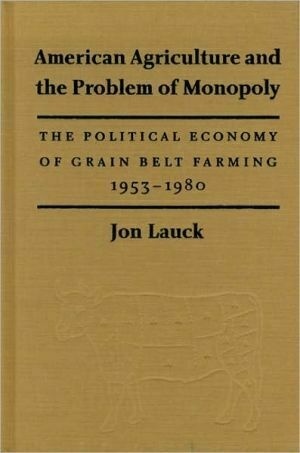
The breathtaking number of mergers and joint ventures among agribusiness firms has left independent American farmers facing the power of an increasingly concentrated buying sector. The origin of farmers? concern with such economic concentration dates back to protests against meatpackers and railroads in the late nineteenth century. Jon Lauck examines the dimensions of this problem in the American Midwest in the decades following World War II. He analyzes the nature of competition within meat-packing and grain markets. In addition, he addresses concerns about corporate entry into production agriculture and the potential displacement of a production system defined by independent family farms. Lauck also considers the ability of farmers to organize in order to counter the market power of large-scale agribusiness buyers. He explores the use of farmer cooperatives and other mechanisms which may increase the bargaining power of farmers. The book offers the first serious historical examination of the National Farmers Organization, which fully embraced the bargaining power cause in the postwar period. Lauck finds that independent farmers? attempts at organization have been more successful than previously recognized, but he also shows that their successes have been undermined by the growing concentration and power of agri-business firms, justifying a new approach to antitrust law in agricultural markets.